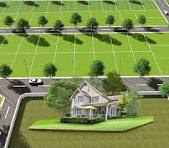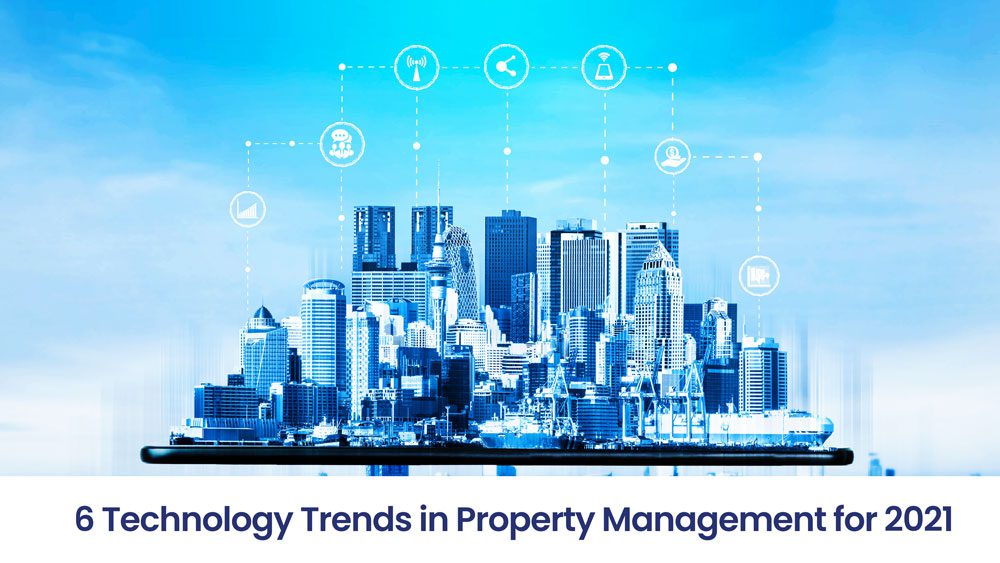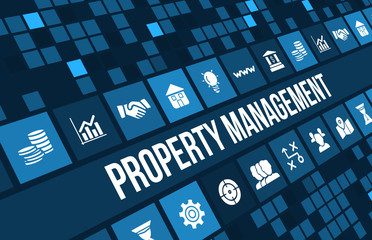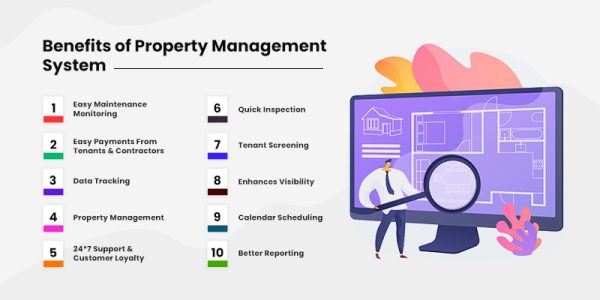The Future of Real Estate: Trends in Property Management
The future of real estate holds immense promise, particularly in the realm of property management. As we navigate an era marked by rapid technological advancement, shifting demographics, and evolving tenant preferences, property management is undergoing a profound transformation. From embracing sustainable practices to leveraging artificial intelligence and automation, property managers are poised to adapt and innovate to meet the changing needs of tenants and stakeholders alike. In this dynamic landscape, it is crucial to explore emerging trends that are reshaping the property management industry, shaping the way we live, work, and interact with our built environments.
Future Impact of Technology on Property Management
Advancements in technology are poised to fundamentally transform the landscape of property management in the future. From smart building systems to data analytics and virtual reality, technology is revolutionizing how properties are managed, enhancing efficiency, sustainability, and tenant satisfaction. Integrated IoT (Internet of Things) devices will enable real-time monitoring of building systems, allowing property managers to detect issues proactively and optimize energy usage. Additionally, AI-driven platforms will streamline administrative tasks such as lease management and tenant communications, freeing up time for more strategic decision-making. Virtual reality will revolutionize property tours and marketing, offering immersive experiences for potential tenants regardless of their location.
Furthermore, blockchain technology holds the potential to revolutionize property transactions and management, providing transparent and secure records of ownership and transactions. As technology continues to evolve, property managers must adapt by embracing these innovations to stay competitive and meet the ever-changing demands of tenants and stakeholders in the real estate industry. Advancements in technology will not only streamline operations but also enhance the overall tenant experience.
Read More About About Property Management Services
Sustainability’s Influence on Property Management Practices
Sustainability and green initiatives are poised to become central pillars in shaping property management practices. Property managers are increasingly recognizing the importance of reducing environmental footprints and promoting eco-friendly practices to meet the demands of environmentally conscious tenants and stakeholders. Embracing sustainable building designs, energy-efficient technologies, and renewable energy sources will not only lower operational costs but also enhance the overall value and attractiveness of properties. Implementing green building certifications such as LEED (Leadership in Energy and Environmental Design) or BREEAM (Building Research Establishment Environmental Assessment Method) will become standard practices to demonstrate commitment to sustainability. Furthermore, integrating eco-friendly amenities like bike-sharing programs, green spaces, and water-saving fixtures will contribute to healthier, more sustainable communities.
As sustainability continues to gain momentum, property managers must prioritize environmental stewardship to remain competitive in an increasingly eco-conscious market. By adopting sustainable practices, property management can play a significant role in mitigating climate change and promoting a more sustainable future for generations to come. In addition to meeting regulatory requirements, embracing sustainability and green initiatives can also have profound implications for tenant retention and attraction. Millennials and Gen Z, in particular, are actively seeking eco-friendly living spaces and are willing to pay premiums for properties with sustainable features.
Adapting Property Management for Remote Work Trends
With the rise of remote work, property managers must adapt to meet the changing needs of tenants by implementing flexible amenities and services. This includes providing robust internet connectivity, creating designated coworking spaces within residential buildings, and offering virtual concierge services to cater to tenants’ evolving work-from-home lifestyles. Additionally, property managers can prioritize security measures to accommodate increased package deliveries and remote access systems for seamless entry management.
Embracing technology-driven solutions like digital leasing and virtual property tours can enhance tenant experience and attract remote workers seeking convenience and safety. Furthermore, fostering a sense of community through virtual events and online networking platforms can mitigate feelings of isolation among tenants, promoting a vibrant residential environment. By proactively addressing the challenges and opportunities presented by remote work, property managers can ensure tenant satisfaction and retention in the evolving real estate landscape.
Read More About Transforming Real Estate: Sustainable Property Management Practices in India
How will demographic shifts influence property management strategies?
Demographic shifts, including the aging population and the preferences of millennials, will significantly impact property management strategies in several ways. With an aging population, property managers may need to prioritize accessibility features and amenities tailored to seniors, such as handrails, elevators, and healthcare facilities. Additionally, there may be a growing demand for age-restricted communities and services geared towards older adults, such as transportation assistance and social activities. On the other hand, millennials’ preferences for urban living, sustainability, and technology integration will drive property managers to invest in eco-friendly amenities, smart home technologies, and communal spaces that foster a sense of community and connectivity.
Moreover, catering to millennials’ desire for flexibility and convenience may lead property managers to offer co-living spaces, flexible leasing options, and shared amenities like coworking spaces and fitness centers. By understanding and adapting to these demographic shifts, property managers can effectively meet the diverse needs and preferences of their tenant base, ensuring long-term success and tenant satisfaction in the real estate market. As demographic shifts continue to shape property management strategies, property managers will also need to consider the impact of generational preferences on location choices and property amenities. For instance, millennials often prioritize proximity to public transportation, entertainment hubs, and cultural amenities, leading property managers to focus on urban developments with easy access to these features. In contrast, the aging population may prefer quieter suburban or retirement communities with access to healthcare facilities and recreational activities.
How will AI and automation revolutionize property management?
AI and automation are poised to revolutionize property management by streamlining operations, improving efficiency, and enhancing tenant experiences. Through predictive analytics, AI can analyze vast amounts of data to anticipate maintenance needs, optimize energy usage, and forecast market trends, enabling property managers to make data-driven decisions and minimize costs. Automation of routine tasks such as rent collection, lease management, and maintenance scheduling will free up property managers’ time, allowing them to focus on strategic planning and tenant engagement. Additionally, AI-powered chatbots and virtual assistants can provide instant support to tenants, addressing inquiries and resolving issues promptly. Smart building technologies driven by AI will enable proactive monitoring of building systems, detecting anomalies and potential issues before they escalate, thus improving building safety and reducing downtime.
Overall, AI and automation will transform property management by driving efficiency, enhancing tenant satisfaction, and unlocking new opportunities for innovation in the industry. Furthermore, AI and automation have the potential to revolutionize tenant screening processes by analyzing applicant data and identifying high-quality tenants based on predetermined criteria, thereby reducing the risk of late payments or property damage. These technologies can also facilitate personalized marketing efforts by analyzing tenant preferences and behavior patterns, enabling property managers to tailor their offerings to meet individual needs and preferences.
Cities where our Property Management Services are offered :
- Property Management in Hyderabad
- Property Management in Vijayawada
- Property Management in Vizag
- Property Management in Guntur
Conclusion:
In conclusion, the future of real estate and property management is teeming with opportunities for growth, efficiency, and sustainability. By embracing emerging trends such as sustainability initiatives, technological innovations, and demographic shifts, property managers can position themselves at the forefront of a rapidly evolving industry. Through proactive adaptation and strategic foresight, property managers can not only meet the diverse needs of tenants but also drive operational excellence and enhance the overall value of properties. As we journey into the future, it is imperative for property managers to remain agile, innovative, and committed to delivering exceptional experiences that shape the way we inhabit and interact with the built environment.
Related Posts
The Best Residential Plots for Sale in Amaravati
The Best Residential Plots for Sale in Amaravati: A Comprehensive Guide Amaravati, the vibrant capital…
Top Locations for CRDA Approved Plots in Amaravathi
Top Locations for CRDA Approved Plots in Amaravathi Choosing the right location for investing in…
Why Invest in CRDA Approved Plots in Amaravathi
Why Invest in CRDA Approved Plots in Amaravathi Investing in CRDA (Capital Region Development Authority)…
How to Create a Tenant-Friendly Property: Tips for Landlords
Title: Why Invest in CRDA Approved Plots in Amaravathi Investing in CRDA (Capital Region Development…
The Role of Technology in Modern Property Management
Streamlining Property Management: The Impact of Technology in Modern Real Estate In the ever-evolving landscape…
Common Challenges in Tenant Management and How to Overcome Them
Common Challenges in Tenant Management and How to Overcome Them Tenant management is a crucial…
Essential Qualities to Look for in a Property Management Company
Essential Qualities to Look for in a Property Management Company Choosing the right property management…
Tips for Building a Strong Community in Multi-Family Rental Properties
10 Proven Strategies for Cultivating a Thriving Community in Multi-Family Rental Properties In the realm…
Best Practices for Conducting Background Checks on Potential Tenants
Ensuring Reliable Tenants: Best Practices for Background Checks In the realm of property management, securing…
Integrating Advanced Tech in Property Management
Integrating Advanced Technology into Property Management Services for Enhanced Efficiency In an era defined by…
Cost-Effective Solutions for Managing Maintenance in Property Management Services
Cost-Effective Solutions for Managing Maintenance in Property Management Services. In the realm of property management…
The Role of Property Management in Community Living
The Role of Property Management in Community Living Property management plays a pivotal role in…
Effective Tenant Retention Strategies
Effective Tenant Retention Strategies Effective tenant retention strategies are essential for landlords and property…
Benefits of Professional Property Management for Overseas Investors.
Benefits of Professional Property Management for Overseas Investors. Professional property management offers invaluable benefits for overseas…
The Future of Real Estate: Trends in Property Management
The Future of Real Estate: Trends in Property Management The future of real estate holds…

















